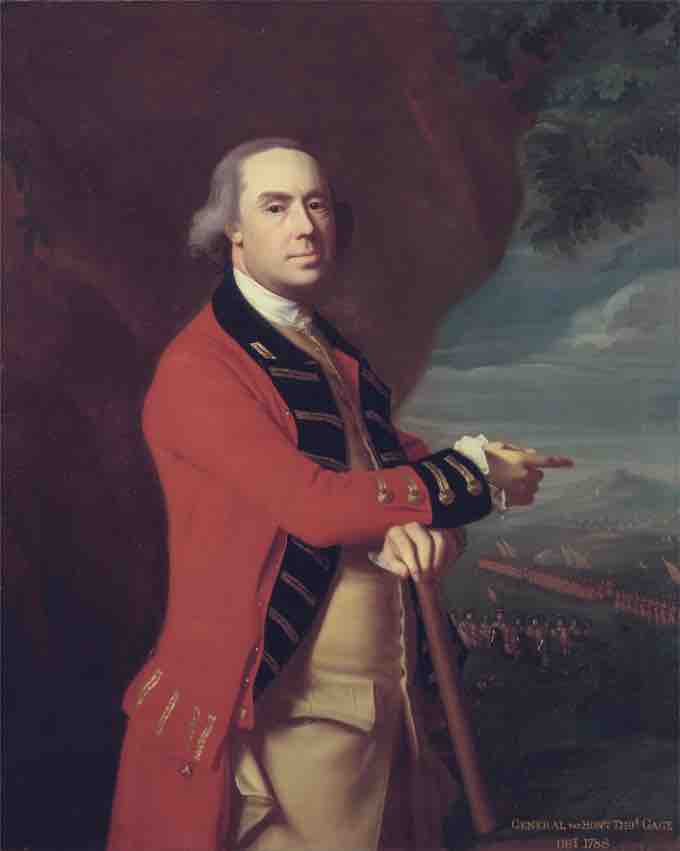Introduction
Two 18th-century acts of the Parliament of Great Britain, known together as the Quartering Acts, ordered the local governments of the American colonies to provide housing and provisions for British soldiers. They were amendments to the Mutiny Act, which had to be renewed annually by Parliament. Originally intended as a response to problems that arose during Britain's victory in the Seven Years War, they later became a source of tension between inhabitants of the 13 colonies and the government in London.
The Quartering Act of 1765
Lieutenant-General Thomas Gage, commander-in-chief of forces in British North America, and other British officers who fought in the French and Indian War, were finding it hard to persuade colonial assemblies to pay for the quartering and provisioning of troops on the march. As a result, Gage asked Parliament to find a solution. Most colonies had supplied provisions during the war, but the issue was disputed in peacetime. Following the expiration of an act that provided British regulars with quartering in New York, Parliament passed the Quartering Act of 1765, which went far beyond what Gage had requested.
This first Quartering Act was given royal assent in March of 1765 and provided that Great Britain would house its soldiers in American barracks and public houses, as by the Mutiny Act of 1765. However, if soldiers outnumbered the housing available, they would be quartered "in inns, livery stables, ale houses, victualing houses, and the houses of sellers of wine and houses of persons selling of rum, brandy, strong water, cider, or metheglin." In addition, the costs of the troops’ food and lodging fell to the colonists.
Resistance to the Act
Since the time of James II, who ruled from 1685 to 1688, many British subjects had mistrusted the presence of a standing army during peacetime, and having to pay for the soldiers’ lodging and food was especially burdensome. Widespread evasion and disregard for the law occurred in almost all the colonies. The colonies disputed the legality of this act since it seemed to violate the Bill of Rights of 1689, which forbade taxation without representation and the raising and/or keeping of a standing army without the consent of Parliament. No standing army had been kept in the colonies before the French and Indian War, and the colonies questioned why a standing army was needed after the French had been defeated.
When 1,500 British troops arrived at New York City in 1766, the New York Provincial Assembly refused to comply with the Quartering Act and did not supply quartering for the troops. As a result, the troops had to remain on their ships. With its great impact on the city, a skirmish occurred in which one colonist was wounded. For failure to comply with the Quartering Act, Parliament suspended New York's governor and legislature in 1767 and 1769; however, this was never carried out because the Assembly soon agreed to contribute money toward the quartering of troops. The Quartering Act was circumvented in all colonies other than Pennsylvania and expired on 1767.
The Quartering Act of 1774
An amendment to the original Quartering Act was passed on June 2, 1774. This act was passed and enforced along with many others, known by the colonists as the "Intolerable Acts." The new Quartering Act similarly allowed a governor to house soldiers in other buildings, such as barns, inns, among other unoccupied structures, if suitable quarters were not provided. Unlike the previous act, it did not require that soldiers be supplied with provisions. The new act also required that the housing of troops be a mutual agreement between the parties involved. If a colonial government had laws that provided troops with accommodations that were approved by the crown, the act was not applied. This act expired on March 24, 1776.
Application Today: The Third Amendment
The Third Amendment to the United States Constitution places restrictions on the quartering of soldiers in private homes without the owner's consent, forbidding the practice in peacetime. The amendment, introduced in the United States Congress a decade after independence in 1789, was a direct a response to the Quartering Acts, which the colonists had greatly opposed. The Third Amendment was introduced by James Madison as a part of the United States Bill of Rights, in response to anti-Federalist objections to the new Constitution. The amendment is one of the least controversial of the Constitution.

Thomas Gage
"Thomas Gage," oil on canvas, by the American artist John Singleton Copley.